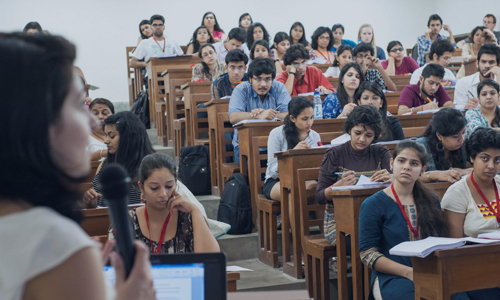- Home
-
About us
The Institute incorporates some of the best features of management education to equip the students to face the challenges of the radically unpredictable business environment.
Read more -
All Courses
B.Voc Courses
Diploma Courses
Executive Programs
-
Admissions
The Institute incorporates some of the best features of management education to equip the students to face the challenges of the radically unpredictable business environment.
Read more - Campus
- Life at IIBMR
The pedigree of a Management Institute is often gauged by its ability not only in transforming students but also orient business executives to the changing business paradigms.
Read moreInternational Institute of Business Management and Research - IIBMR has modeled itself on a management curriculum that extends beyond classroom learning.
Read moreThe first Business School in India to adopt the concept of Finishing School. The mission of the IIBMR Finishing School (IFS) is to mould the future of the nation, by he moulding the people.
Read moreStudent Activities at International Institute of Business Management and Research- IIBMR are conceived to supplement learning capabilities beyond classroom curriculum.
Read more -
Placements
The Institute incorporates some of the best features of management education to equip the students to face the challenges of the radically unpredictable business environment.
Read more - Contact us
Join Now
All Courses
- MBA
- MBA International
- Bcom
- BBA
- BBA International
- B.Voc in Logistics Management
- B.Voc in Information Technology
- B.Voc in Beauty & Wellness Specialization in Cosmetology
- B.Voc in Catering Technology & Hotel Management
- B.Voc in Banking & Finance
- B.Voc in Fashion Technology
- Diploma in Logistics Management
- Diploma in Aviation
- Diploma in Healthcare Management
- Diploma in Hotel Management
- Diploma in Banking & Finance
- Diploma in Fashion Designing & Technology
- CA
- ACCA
- CMA
- Company Secretary
- Executive Pgm. in Wealth Management
- Executive Pgm. in Cyber Security
- Executive Pgm. in Digital Marketing
- Executive Pgm. in Content Writing
- Executive Pgm. in HR Analytics
- Executive Pgm. in Retail Banking













